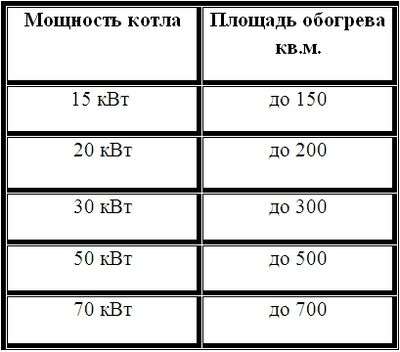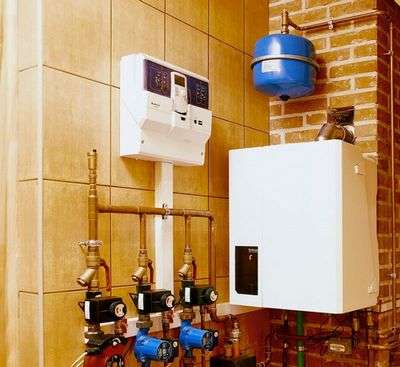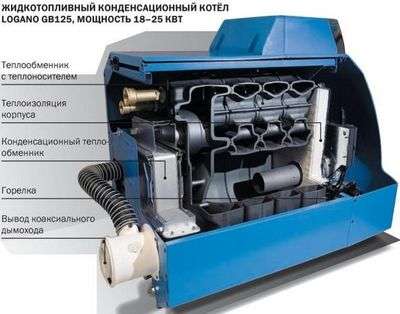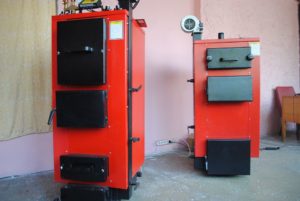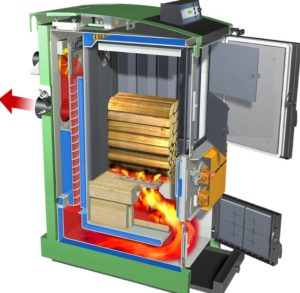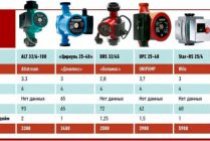Selection of a boiler for heating heating equipment
Many visitors to the Tekhnodom online store turn to us with a request to select heating boilers online. We are always ready to help them in this matter, especially since the assortment of our company includes many different types and models of equipment suitable for literally any purpose. For example, if you need to select a gas boiler according to the parameters, then our consultants will be happy to provide you with all the necessary information. Before you start choosing heating equipment, it is advisable to determine which of its criteria will be the most important for you.
Selection of the boiler according to the parameters (area, power, type of fuel)
Very often, people select a gas boiler for a private house according to the area and volume of the room. This principle works effectively with other types of boilers. With this information, you will be able to determine the optimal capacity of the equipment for your building. It is believed that the ideal performance should be 100 watts per 1 sq. area meter. If you need to select a boiler for a private house, the price of this equipment can also be of considerable importance.
Finally, we advise you to pay attention to the type of fuel - and purchase just such a boiler, the use of which will be the most profitable and less costly for you.
Selection of a gas heating boiler
For many of those who select a gas boiler according to parameters, the cost of this equipment can be very important, but by no means the only factor. In addition, it is worth determining the location of its location - whether it will be wall or floor. An equally significant factor in its volatility, the equipment can be autonomous or it must be connected to the mains. Finally, these models are single-circuit and double-circuit, the former provide only heating, and the latter provide heating and DHW heating. To understand all these subtleties, the employees of the Technodom company will be happy to help you.
Selection of an electric heating boiler
In addition to the selection of a gas boiler for a private house according to the parameters, our customers are also interested in other types of these devices. For example, electric models are very popular. Such boilers must be selected in terms of their power (this is a universal parameter for any models), the type of connection (220V or 380V), the principle of power adjustment (stepped or smooth), as well as the heating method (heater or electrode)
Each of the listed criteria can play a rather important role, therefore, we recommend paying special attention to all of them.
Selection of a solid fuel heating boiler
No less common are solid fuel heating boilers, many visitors to the Tekhnodom online store want to purchase this particular type of product.
When choosing them, we advise you to pay attention to the fuel used by the boiler (coal, firewood, pellets, pyrolysis boilers enjoy considerable success), the method of loading it (automatic or manual), the material of the heat exchanger, the volume of the combustion chamber, energy consumption, etc. We will also be happy to help you choose a double-circuit boiler for an indirect heating boiler.
We select a boiler according to various parameters
Now it's time to talk about how to select a heating boiler according to the parameters. These parameters include the area of heated premises and the power of heating equipment.
Consider how to make the right selection of a heating boiler by area. In this case, several points should be taken into account:
- If your house is insulated according to the standards, its ceilings are 3m, then the power will be determined at the rate of 1 kW per 10 sq.m.
- If the house is not insulated in the best way, or verandas and uninsulated attics are heated, then the power will be greater.
- If the boiler is used not only for heating the house, but also for supplying hot water, then the power will be increased by 20-50%.
Of course, if you do not have certain special knowledge, then you will only make an approximate choice of the heating boiler power. After all, if you apply a more complex formula, then some more indicators are included.
Boiler power depending on the area of \u200b\u200bthe house
Consider the formula for calculating the power of a heating boiler. Boiler power is the most important operating parameter. It does not depend on what type of fuel will be used in the future. If the power is not enough, you will freeze, if, on the contrary, you purchase a device that is too powerful, then you will overpay.
To select the power of the heating boiler, consider the formula. So, this includes the following options:
- Room area S.
- Specific power of the boiler per 10 sq.m of premises Wsp. - taking into account climatic conditions: Moscow and the region - 1.5 kW, North - 1.5 - 2 kW, South - 0.7 - 0.9 kW.
The formula will look like this: Boiler power = SWsp./10.
When choosing a boiler, first of all, it is necessary to calculate the energy demand of the heating object. The parameters of the heating system are calculated according to the heat loss of the room, which depend on the size of the room, the thermal conductivity of the outer walls, internal partitions and ceilings, the difference between the external and internal air temperatures, so the final determination of the boiler power should be trusted only to professional heating engineers. But it is possible to preliminarily determine the power of the boiler, and, accordingly, the cost of the equipment and its other parameters independently. Approximately, you can use the following ratio - 1.2 kW of boiler power is required to heat approximately 10 m2 of a well-insulated room with a ceiling height of up to 3 m.
The determining parameters that should be relied upon when calculating power are:
- heated area (S);
- specific power of the boiler per 10m? premises, which is set taking into account amendments to the climatic conditions of the region (W sp.).
There are generally accepted values of specific power for climatic zones:
- for the Moscow region - W beats. = 1.2 - 1.5 kW;
- for the Northern regions - W beats. = 1.5 - 2.0 kW;
- for the Southern regions - W beats. = 0.7 - 0.9 kW.
Calculation of the boiler power (W cat) is carried out according to the formula:
W cat. = S W sp. / 10
Often, for the convenience of calculations, the average value of W beats is used. equal to one. Based on this, it is customary to choose the boiler power at the rate of 10 kW per 100 m 2 of the heated room.
Example:
1. The area of the heated room S = 100 m?;
2. Specific power (Wsp) for the Moscow region = 1.2 kW;
W cat. \u003d 100 1.2 / 10 \u003d 12 kW;
The table shows the approximate power of the boilers depending on the area of the serviced house (for the Moscow region).
What should be guided
When asked how to choose a heating boiler, they often answer that the main criterion is the availability of a particular fuel. In this context, we distinguish several types of boilers.
gas boilers
Gas boilers are the most common types of heating equipment. This is due to the fact that fuel for such boilers is not very expensive, it is available to a wide range of consumers. What are gas heating boilers? They differ from each other depending on what type of burner - atmospheric or inflatable. In the first case, the exhaust gas goes through the chimney, and in the second, all combustion products leave through a special pipe with the help of a fan. Of course, the second version will be a little more expensive, but it will not require smoke removal.
Wall mounted gas boiler
As for the method of placing the boilers, the choice of a heating boiler assumes the presence of floor and wall models. Which heating boiler is better in this case - there is no answer. After all, everything will depend on what goals you are pursuing. If, in addition to heating, you need to conduct hot water, then you can install modern wall-mounted heating boilers. So you will not need to install a boiler for heating water, and this is a financial savings. Also, in the case of wall-mounted models, combustion products can be removed directly to the street. And the small size of such devices will allow them to fit perfectly into the interior.
The disadvantage of wall models is their dependence on electrical energy.
Electric boilers
Next, consider electric heating boilers. If there is no mains gas in your area, an electric boiler can save you. Such types of heating boilers are small in size, so they can be used in small houses, as well as in cottages from 100 sq.m. All combustion products will be harmless from an environmental point of view. And the installation of such a boiler does not require special skills. It is worth noting that electric boilers are not very common. After all, fuel is expensive, and prices for it are rising and rising. If you are asking which boilers for heating are better in terms of economy, then this is not an option in this case. Very often, electric boilers serve as spare appliances for heating.
Solid fuel boilers
Now it's time to consider what solid fuel heating boilers are. Such boilers are considered the most ancient, such a system has been used for space heating for a long time. And the reason for this is simple - fuel for such devices is available, it can be firewood, coke, peat, coal, etc. The only drawback is that such boilers are not able to work offline.
Gas generating solid fuel boiler
Modification of such boilers are gas generating devices. Such a boiler differs in that it is possible to control the combustion process, and the performance is regulated within 30-100 percent. When you think about how to choose a heating boiler, you should know that the fuel used by such boilers is firewood, their humidity should not be less than 30%. Gas-fired boilers depend on the supply of electrical energy. But they also have advantages in comparison with solid propellant ones. They have a high efficiency, which is twice as high as solid fuel appliances. And from the point of view of environmental pollution, they are environmentally friendly, since the combustion products will not enter the chimney, but will serve to form gas.
The rating of heating boilers shows that single-circuit gas-generating boilers cannot be used to heat water. And if we consider automation, then it is great. You can often find programmers on such devices - they regulate the temperature of the heat carrier and give signals if there is an emergency danger.
Gas-fired boilers in a private house are an expensive pleasure. After all, the cost of a heating boiler is high.
Oil boilers
Now let's look at liquid fuel boilers. As a working resource, such devices use diesel fuel. For the operation of such boilers, additional components will be needed - fuel tanks and a room specifically for the boiler. If you are thinking about which boiler to choose for heating, then we note that liquid fuel boilers have a very expensive burner, which can sometimes cost as much as a gas boiler with an atmospheric burner. But such a device has different power levels, which is why it is beneficial to use it from an economic point of view.
In addition to diesel fuel, liquid fuel boilers can also use gas. For this, replaceable burners or special burners are used, which are capable of operating on two types of fuel.
Oil boiler
What type of gas boiler to choose for a cottage
- The principle of operation - modern gas boilers for a cottage, use condensing heating of the coolant. The efficiency of condensing equipment reaches 108%. The optimal use of boilers of this type is low-temperature heating systems (warm floors).
- Type of combustion chamber - atmospheric boilers, have a classic design. Air is supplied from the room in which the boiler equipment is installed. Equipment with a closed combustion chamber has a higher efficiency. Air intake and exhaust of combustion products is carried out by means of a coaxial pipe.
- Energy dependence - the operation of gas boilers of the classical type does not depend on the availability of electricity. Turbocharged and condensing models of heating devices with a closed combustion chamber, as well as equipment using a microprocessor controller, depend on the availability of electricity in the network.
How many circuits should be
-
Single-circuit models - in the internal device there is one heat exchanger designed to heat the coolant of the heating system. Boilers have great performance. To heat DHW water, you need to connect an external storage boiler. Installing a single-circuit gas boiler in a cottage is justified only in the case of a large heated area of \u200b\u200bthe premises, when there is no need to heat hot water or it is planned to additionally install a storage tank.
-
Double-circuit models - boilers are equipped with two heat exchangers:
- The primary circuit is made of steel and works to heat the coolant in the heating system.
- The secondary heat exchanger is a copper coil (an alloy of several metals can also be used in production). Heating of hot water is carried out in a flowing way.
Double-circuit gas boilers for cottages have less power compared to single-circuit counterparts, but are quite convenient to operate.
-
Boilers with built-in storage boiler. The main disadvantage of double-circuit equipment is that heated water is supplied to the consumer not immediately after the tap is opened, but after a few minutes. This problem is easily solved, thanks to the container provided inside the body, similar in design to a boiler. The required temperature of the liquid is automatically maintained in the storage tank. The tank is connected to the recirculation system. Hot water is supplied to the consumer immediately after opening the tap.
What type of accommodation is best
Stationary boiler - floor installation has one significant advantage - there are almost no restrictions on the weight of the structure. This feature allows the production to install all the necessary equipment of good quality.
As a rule, floor models have a longer service life than wall versions.
Wall-mounted boiler - has a modest size, does not take up much space after installation, which is especially important if a small boiler room is used. During installation, the load on the load-bearing wall increases significantly, therefore, the manufacturer seeks to facilitate the design
For this, lightweight metal alloys are used in the production, which affects the service life.
What can replace
Today there are many options for heating homes and obtaining warm water, even without the use of a boiler. In particular, these are devices that allow you to efficiently and high-quality heating a house. Basically, they work on the energy generated when the fuel burns, turning into heat. Thanks to this, the room is qualitatively filled with heat.
Most often the boiler is replaced:
- steam system powered by mains heating;
- gas or electric system of autonomous type;
- stove heating, for which any fuel is used;
- fireplace;
- autonomous heating system powered by sun or wind;
- air conditioner.
You can choose the heating yourself and combine it, starting with radiators and pipes, ending with a fireplace and a portable heater.
Consider each presented type of heating system used to replace the boiler.
- Stove or fireplace. Both devices heat the room and water by burning wood or coal. To organize such a heating system, you will have to make a stove or buy ready-made communications and install it correctly. As a result, you can get economical and environmentally friendly equipment for heating, cooking and heating water. In this case, the stove can be made of brick or metal and immediately heat adjacent rooms.
- Air conditioner. Not many people realize that the air conditioner heats the air well in the cold season. At the same time, its installation will require a minimum amount of time, unlike the boiler. However, the minus of such equipment is the high cost of maintenance, as well as the heating of a small number of square meters of the room.
- Autonomous heating system with pipe and radiator systems connected to it. It can be obtained from the sun using devices called solar collectors. They are able to convert solar energy into heat for the home. It can also be obtained from the strength of the wind using a wind apparatus, consisting of a turntable with a generator and a battery device, or a wind station.
Important! These devices are suitable for efficient heating of a residential area, which is located away from the gas line. You can get warm even without using the central heating system, pipes with boilers and radiators
This can be achieved by maximum insulation of housing, a change in the usual wardrobe for the home and psychological heating.
You can even get warm without using the central heating system, pipes with boilers and radiators. This can be achieved by maximum insulation of housing, a change in the ordinary wardrobe for the home and psychological heating.
Maximum home insulation includes wall insulation, adding warm floors to rooms, massive curtains on window openings, etc. Even when the boiler is operating, such nuances retain heat better and allow you to use the system economically.
Changing your wardrobe for the home includes starting to wear knitted sweaters, using blankets while relaxing, using warming capes with heating pads and warm drinks.
Psychological heating includes changing the design of rooms, changing the overall color scheme of rooms to warm shades, adding knitted decor and wood accessories to the room, using aroma candles and photos of warm places. So, you can deceive yourself and make the body psychologically receive heat.
In any case, you can find an option and a way to heat your home without a boiler. Such heating can warm even at sub-zero temperatures outside the window. Using the presented methods, you can heat your home even in the most difficult situation.
Selection of a heating boiler by price, power, combustion chamber
Dear users of our resource, if you are on our website for the first time in search of a heating boiler and do not know which boiler you need, we recommend using the heating boiler power calculation.
Here you can choose a heating boiler based on the fact that you already know what kind of boiler you need, the power of the boiler, where the boiler will be mounted: on the wall or it will be floor-mounted and, of course, take into account the resources available for this. For selection, we suggest specifying the criteria you need.
More detailed information can be obtained by clicking on the appropriate link as a result of the selection of a heating boiler or by calling in Moscow +7 (495) 48-132-48
Criteria for selecting a heating boiler:
- boiler price
- number of circuits (single circuit or double circuit)
- type of boiler (wall or floor)
- combustion chamber (open or closed)
- type of heat carrier (gas, diesel, electricity)
- boiler power
- boiler voltage (220V, 380V, 220/380V)
In order to find out more detailed information about heating boilers, we present the classification of heating boilers:
by installation method (at the place of installation):
- floor (cast iron or steel)
- wall-mounted (mounted) (usually operate on gas)
by type of energy carrier:
- liquid fuel (diesel oil, kerosene, fuel oil, etc.)
- solid fuel (solid fuel: firewood, coal, coke, sawdust, fuel briquettes, etc.)
- gas (liquefied gas, natural gas)
- electrical (energy carrier may be electricity)
- universal (multi-fuel, combined) (energy carriers can be different, depending on the heating boiler)
by the number of circuits:
- single-circuit, such boilers are intended only for heating, as a rule, in such boilers it is possible to connect an external storage boiler.
- double-circuit (one circuit for heating, the second for hot water supply)
by combustion chamber:
- open, air, namely oxygen for combustion, is taken from the place where the boiler is installed. It must be well ventilated.
- closed, air is taken, as a rule, from the outside, although such boilers can be converted to take air from the place where it is installed. Boilers with a closed combustion chamber, in turn, differ from each other - in the way of air intake and smoke removal. Those. or with a separate smoke exhaust system, when two “pipes” approach the boiler - one of which supplies air, and the other removes combustion products. In boilers with a coaxial chimney, which are more compact, there is one pipe inside the other. Air is supplied through one, and smoke removal is carried out through the other.
according to the material of the main heat exchanger:
according to the type of burner (burner device):
- inflatable (fan) burner (gas or liquid)
- atmospheric burner (gas)
according to the method of movement of the coolant:
- natural circulation / gravity (no pump)
- forced circulation (with pump)
by the amount of voltage required for operation:
by type of coolant:
- liquid (water or antifreeze)
- steam
- air
Power and installation location of the heating boiler for the house
The required power of the boiler is determined depending on the area of \u200b\u200ba private house. The smaller the area of \u200b\u200bthe house, the less power the boiler can be. It is imperative to take into account the heat leakage (heat loss) in the building. Heat can escape through a window or an open window, through the front door. And the building itself can lose heat, depending on the quality of its insulation. Therefore, the boiler must be selected with a certain margin of power.
It is better to entrust the calculation of the power of heating equipment to qualified specialists, but you can calculate it yourself. 1 kW is able to heat 10 m² of your house. For example, for a house with an area of 200 m², you will need a 23 kW boiler (taking into account a 15% power reserve).
When choosing a boiler, you need to take into account the method and location of its installation. The installation method is to be understood as the floor or wall-mounted version of the boiler, and the place is the room in which the equipment will be installed.
Scheme of the device of a turbocharged boiler.
To install floor models, as a rule, you need to allocate a separate room. This is due, first of all, to the fact that many other smaller, but very important devices (pump, expansion tank, pipes, various fittings, taps, etc.) are needed for their operation. It is not very convenient to arrange this mass of appliances and assemblies, for example, in the kitchen. Therefore, they allocate a separate room - the boiler room.
Type of operation of heating equipment for a private house
Scheme of installation of a solid fuel heating boiler.
Boilers for heating houses differ in the type of their work.In this case, the design of the boiler (wall or floor) does not matter.
Single-circuit models, which were originally intended only to provide heating for a private house, can also be used to heat water for domestic needs (wash dishes, take a shower, etc.), that is, provide your house with hot water, but require the addition of additional devices and components such as pumps and indirect heating boiler. Such a design of the boiler room needs to be allocated a separate room due to its dimensions, but it makes it possible to choose the equipment that is suitable for your home.
Double-circuit boilers for home heating are very popular, which were originally intended both for heating and for providing hot water. A unit is already built into the body of such devices, which provides heating of water for domestic needs, which saves space in the room, but narrows down the choice of equipment. For example, the capacity of the built-in hot water supply unit is designed for 2 simultaneously operating points, and you have more than 2.
In addition, chimney and chimneyless boilers are on the market. When burning any type of fuel (with the exception of electricity), combustion products are emitted in the form of smoke. These products must be discharged into the chimney. The chimney itself must be separate for the boiler and brought out above the roof of the house. Such equipment cannot work without a chimney.
Chimneyless models are often referred to as turbocharged. Combustion products are removed by means of a special fan (turbine). A chimney is still necessary for such models, but it is installed differently: not vertically and not higher than the roof of the building, but is displayed horizontally through the wall. A chimney of this type is called coaxial, and its length is 50 cm or more. If the chimney in your house was not provided, then the choice of such equipment can save a lot.
Selection of solid fuel boiler
When choosing a solid fuel boiler, the following features should be considered:
1 The heat output of the boiler (the amount of heat produced by the boiler per hour) can vary greatly depending on the type of fuel used and the combustion phase.
2 The rated heat output of the boiler, declared by the manufacturer in the technical specifications, is achieved by burning coal of the Anthracite brand, and this is coal with the highest calorific value. Therefore, if it is supposed to use other types of fuel, then when calculating the power of a solid fuel boiler, multiplying factors are used:
- 1.05 for hard coal
- 1.18 for brown coal
- 1.25 for peat briquettes
- 1.25 for dry firewood with a moisture content of 15-20% (two years of drying)
- 3.33 for raw firewood with a moisture content of 70-80%
3 Manufacturers determine the rated heat output of the boiler as the average hourly power generated by the boiler during the combustion of one full load of anthracite coal, while the combustion process proceeds in normal mode with an excess of oxygen.
As a rule, the burn-in time of one load in this mode is no more than 4 hours. This means that the boiler can produce 70% of the nominal power for the first and last hour of burning, and work with a power of 130% for two hours of the active combustion phase. The rated power in the technical characteristics of the boiler will indicate the average 100% = (70 +130 +130 +70) / 4.
It is very important to take this feature into account when calculating a solid fuel boiler and choosing its piping scheme. 4 When choosing a solid fuel boiler, it is recommended to take a power reserve relative to the power of the heat consumption system of about 25-30%
The power reserve of the boiler will allow:
4 When choosing a solid fuel boiler, it is recommended to take a power reserve relative to the power of the heat consumption system of about 25-30%. The power reserve of the boiler will allow:
- cover unaccounted heat losses
- level the discrepancy between fuel quality and declared values
- increase the burning time of a single load of fuel, since boilers of higher power usually have a large volume of the loading chamber
- cover the power required for heating hot water if the boiler was selected for the load of the heating system.
To take into account the above factors, when calculating a solid fuel boiler, designers often use even a twofold increase in power, although the stock leads to cost overruns for its purchase.
5 Regardless of what manufacturers write in the characteristics of the boiler, if it is not pyrolysis, it will not burn for more than 12 hours. In order for a solid fuel boiler to burn for 12 hours, it must burn in the smoldering mode with an oxygen deficiency in the furnace, while the ash content increases significantly and the efficiency of fuel combustion decreases. In other matters, this mode is not recommended by any manufacturer at all, but rather is used simply as a publicity stunt.
Therefore, if loading the boiler with a frequency of 4-6 hours is unacceptable for you, it is better to give preference to pyrolysis boilers or use a connection scheme with a heat accumulator.
6 Some fuels burn quickly, others slowly. This feature should also be taken into account when calculating a solid fuel boiler if the frequency of fuel loading is an important factor for you. The above online calculation will determine the amount of thermal energy generated from one load of fuel in kWh and the burning time.
Feature of the selection of a solid fuel boiler for a heating system
When choosing a heating boiler, it should be taken into account that the estimated heat output of the heating system is needed for no more than 5-7 days of the heating period.
The heat output of the heating system is calculated for the temperature of the coldest five-day period, the eight coldest winters over the past 50 years. On average, for Ukraine, the calculated outdoor temperature, depending on the region, ranges from -19 to -23°C.
The average heat consumption of the heating system during the heating period is approximately half of the calculated heat load. Therefore, if a solid fuel boiler is selected with a recommended power reserve of 30% for the calculated outdoor temperature, that is, 130% of the required power at the calculated temperature, then with an average load over the winter, its power reserve will be 260% of the required.
It follows from this that the warmer it is outside, the longer the burning time of a single load of fuel will be.
Which boiler for heating a private house to choose
Any dwelling located in the temperate climate zone requires heating during the onset of cold weather. And if in the conditions of multi-storey building of microdistricts this issue is approached centrally, then the owner of a private house has to solve this problem independently. If it is necessary to provide heat to a small hut, the way out of this situation has been known for centuries - an ordinary wood-burning stove. But this option is not suitable for larger buildings that require an individual heating system, an integral and main part of which are boilers for heating a private house.
At the moment, a wide range of these units is presented on the market, different in design, power and types of fuel used. An improperly selected boiler for heating a private house can lead to increased financial costs for ensuring comfort in the home. To select the optimal option for a boiler integrated into the heating system, it is necessary to consider all existing types of devices, their advantages and disadvantages.
Advantages and disadvantages
The advantages of wall-mounted gas boilers include:
- low cost,
- ease of installation (this reduces the cost of installation work),
- small size,
- full control over the operation of the unit.
- little power
- dependence on the availability of electricity.
Advantages of floor boilers:
- autonomous,
- independent of power supply
- have great power
- durable.
The disadvantages of outdoor installations include:
- the high cost of the boiler itself,
- high installation costs
- the need for a special room for a heating boiler or equipment already available for a heating installation. This requires additional financial and resource costs.
